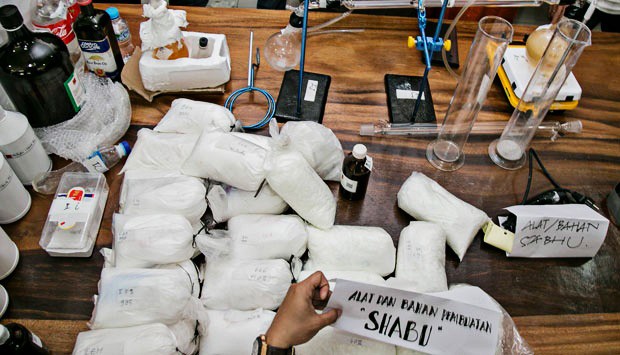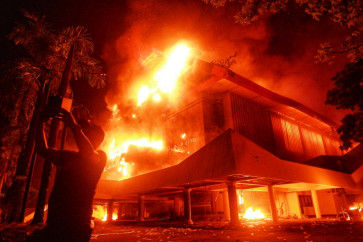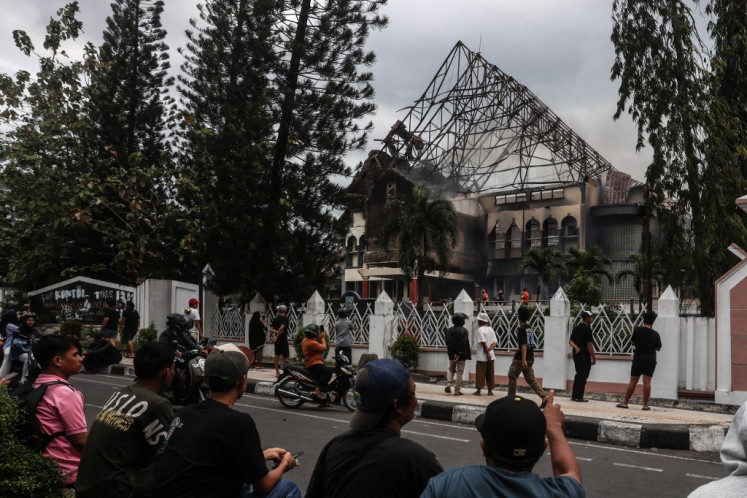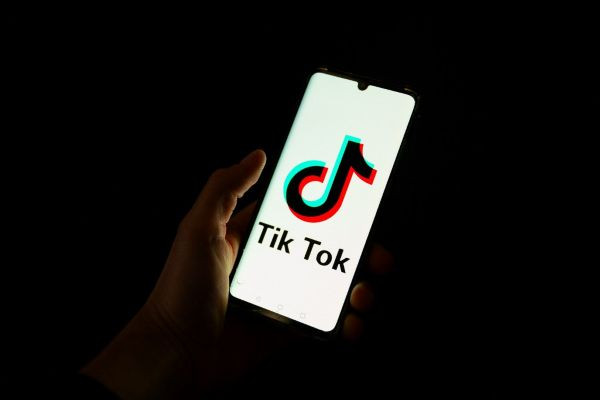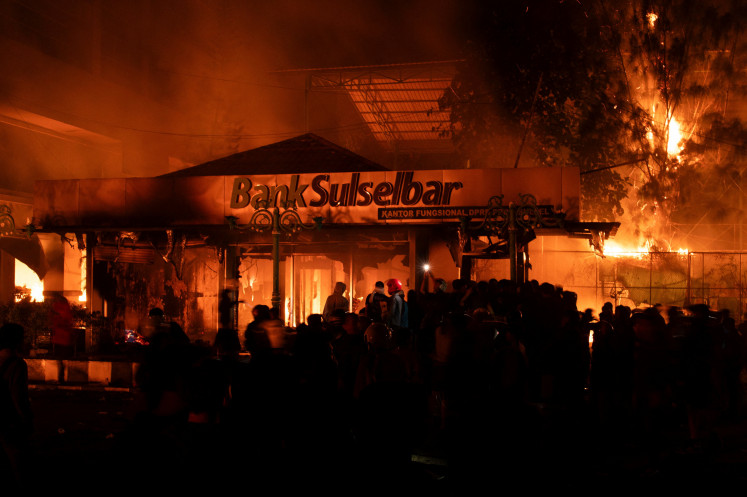Popular Reads
Top Results
Can't find what you're looking for?
View all search resultsPopular Reads
Top Results
Can't find what you're looking for?
View all search resultsUN says Southeast Asia among world’s largest meth markets
Change text size
Gift Premium Articles
to Anyone
E
ast and Southeast Asia and North America together have annually accounted for the largest methamphetamine seizures globally since 2009, a recent UN report reveals.
"Indonesia is a source, transit and destination country in the trafficking of meth," the UN Office on Drugs and Crime's (UNODC) Indonesia country manager, Collie F. Brown, said on Friday during a media briefing on the 2016 World Drug Report.
Brown said there was evidence that crystal meth had been produced in Indonesia. Although it was easy, he said, setting up a meth lab was dangerous because the chemicals used in its production were very unstable and highly explosive.
While the US has consistently reported the largest amount of meth being seized each year, the numbers in East and Southeast Asia almost quadrupled between 2009 and 2014, the report said. In 2014, crystalline methamphetamine was the primary drug of concern in Indonesia, Brunei Darussalam, Cambodia, the Philippines, Japan and the Republic of Korea.
Globally, seizures of amphetamine-type stimulants (ATS), which meth falls under, have risen more than seven-fold from 1998 until 2014.
Brown credited Indonesia's efforts in implementing the UNODC's international guidelines for the prevention of drugs. He encouraged UNODC member countries, including Indonesia, to constantly review the effectiveness of the program to evaluate what worked and what did not in their respective countries.
In the briefing, Brown emphasized the importance of implementing drug response strategies and policies that were comprehensive and balanced. UNODC would continue to work in partnership with the Southeast Asian country to address drug issues, he said. "Indonesia has the capacity here; it's the support that they need," said Brown.
The report was published on June 23 following a UN General Assembly special session on the world drug problem (UNGASS) in April. This was declared a landmark moment in global drug policy and resulted in a series of operational recommendations. (ebf)

